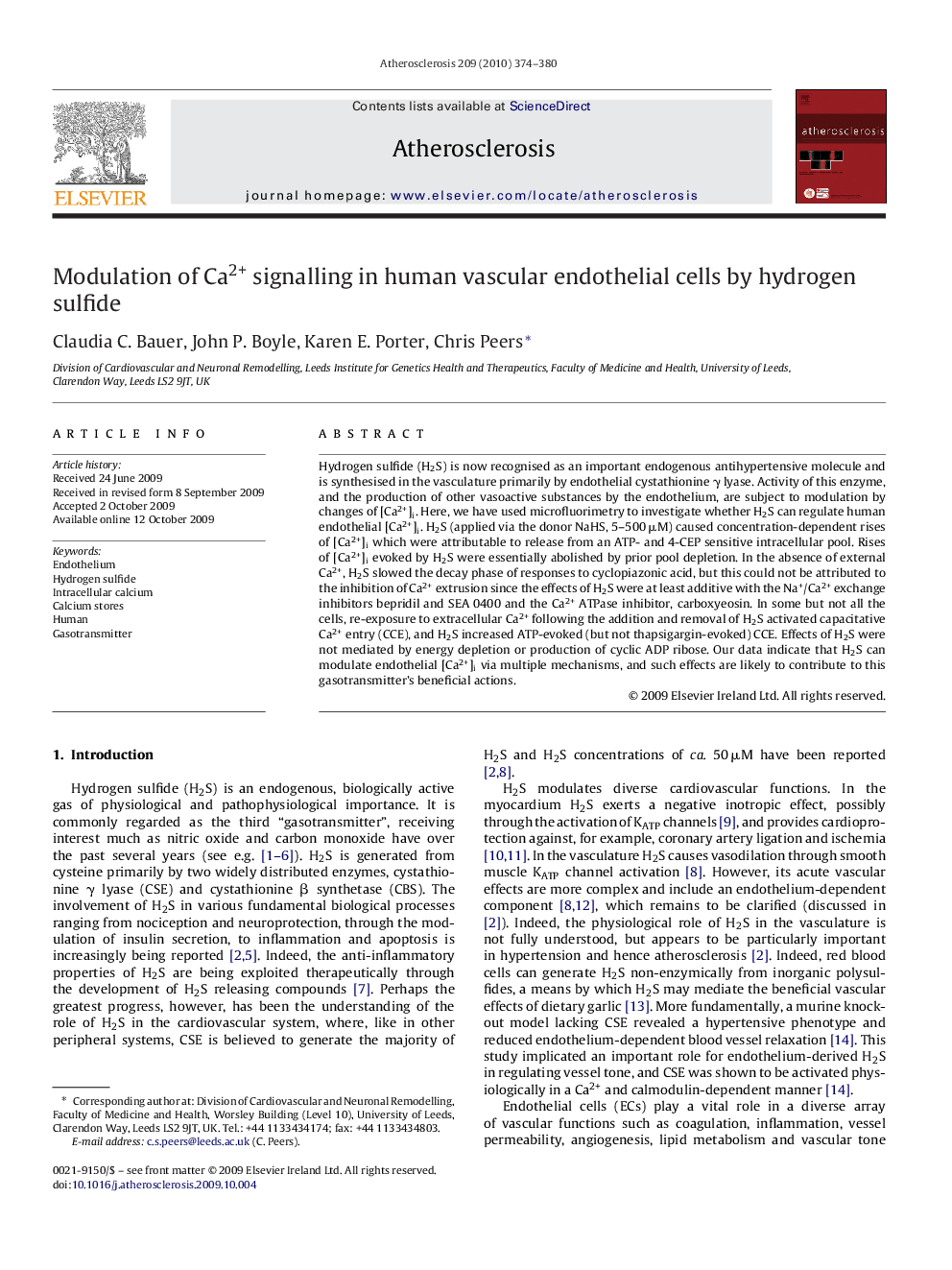| Article ID | Journal | Published Year | Pages | File Type |
|---|---|---|---|---|
| 2893219 | Atherosclerosis | 2010 | 7 Pages |
Hydrogen sulfide (H2S) is now recognised as an important endogenous antihypertensive molecule and is synthesised in the vasculature primarily by endothelial cystathionine γ lyase. Activity of this enzyme, and the production of other vasoactive substances by the endothelium, are subject to modulation by changes of [Ca2+]i. Here, we have used microfluorimetry to investigate whether H2S can regulate human endothelial [Ca2+]i. H2S (applied via the donor NaHS, 5–500 μM) caused concentration-dependent rises of [Ca2+]i which were attributable to release from an ATP- and 4-CEP sensitive intracellular pool. Rises of [Ca2+]i evoked by H2S were essentially abolished by prior pool depletion. In the absence of external Ca2+, H2S slowed the decay phase of responses to cyclopiazonic acid, but this could not be attributed to the inhibition of Ca2+ extrusion since the effects of H2S were at least additive with the Na+/Ca2+ exchange inhibitors bepridil and SEA 0400 and the Ca2+ ATPase inhibitor, carboxyeosin. In some but not all the cells, re-exposure to extracellular Ca2+ following the addition and removal of H2S activated capacitative Ca2+ entry (CCE), and H2S increased ATP-evoked (but not thapsigargin-evoked) CCE. Effects of H2S were not mediated by energy depletion or production of cyclic ADP ribose. Our data indicate that H2S can modulate endothelial [Ca2+]i via multiple mechanisms, and such effects are likely to contribute to this gasotransmitter's beneficial actions.
